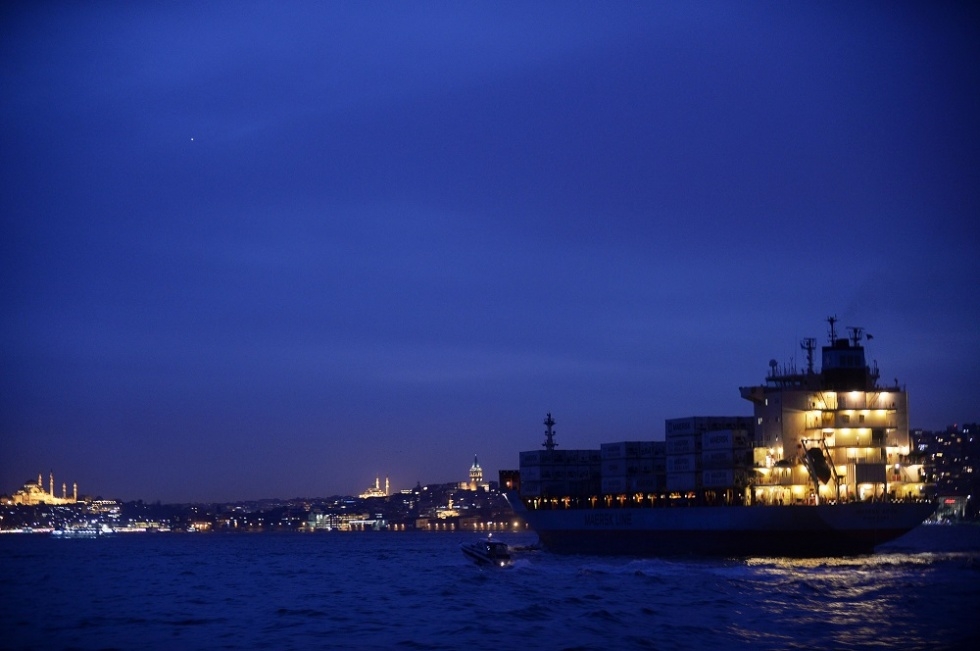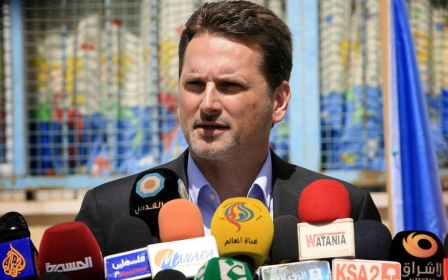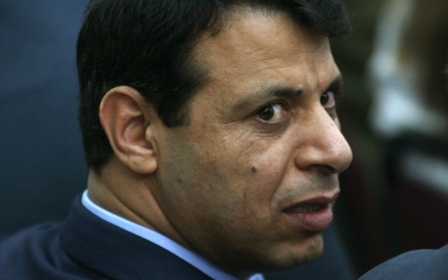Gaza to propose 'water corridor' to Turkey, sources

By Ola Attalah
GAZA CITY – The Gaza government will present a proposal to Turkey for the creation of a "water corridor" linking the Gaza Strip to the outside world, a government source said Wednesday.
"The Gaza government will communicate with the Turkish government in the next few days to present the proposal, drafted by the Euro-Mid Observer for Human Rights, for the creation of a water corridor that links Gaza with the world," the source told Turkish news agency Anadolu.
Israel has imposed a crippling blockade on the Gaza Strip since 2007, depriving the territory's roughly 1.8 million residents of basic needs. Newly-appointed United Nations Relief and Works Agency (UNRWA) Commissioner-General Pierre Krahenbuhl on Wednesday described the siege as the "longest in history".
Living conditions in the strip have badly deteriorated since the Egyptian army began cracking down on a network of smuggling tunnels - used to smuggle food and fuel into the strip - following last summer's ouster of elected president Mohamed Morsi. Egypt accuses Hamas, which rules Gaza, of involvement in violence in Egypt and the Sinai Peninsula.
Rami Abdo, head of the Euro-Mid Observer for Human Rights in Gaza, said efforts were underway to create a water corridor linking Gaza to the outside world.
He said his agency had presented the Gaza government with a full report on the proposed project.
"The Gaza government will contact the Turkish government in the next few days to discuss means of implementing the project," Abdo told AA.
He said the project was part of efforts to end the longstanding blockade on the Palestinian enclave.
Gaza, which overlooks the Mediterranean Sea, contains a modest seaport, which is currently used as a harbor for fishermen. The port has never been used for commercial shipping.
In 1994, the Dutch and French governments donated $43m for the reconstruction of the port. The project should have been completed in 2000, but the eruption of the Palestinian Al-Aqsa uprising - otherwise known as the Second Intifada - and Israel's Gaza blockade put the project on hold.
Middle East Eye propose une couverture et une analyse indépendantes et incomparables du Moyen-Orient, de l’Afrique du Nord et d’autres régions du monde. Pour en savoir plus sur la reprise de ce contenu et les frais qui s’appliquent, veuillez remplir ce formulaire [en anglais]. Pour en savoir plus sur MEE, cliquez ici [en anglais].



